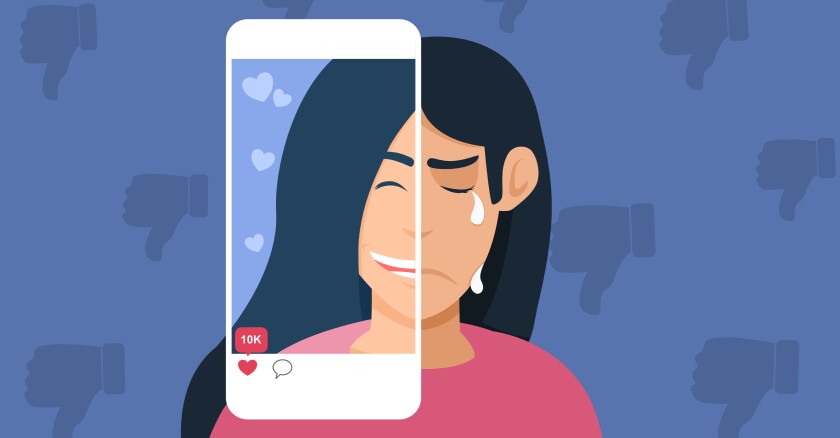"Nowadays, everybody has a phone and everyone has access to social media, so we should probably know what happens when you're on it too much," Bur said.
Gustavus Adolphus College and St. Peter High School students helped spark the conversation even more when they hosted the Digital Wellbeing program for seventh graders Monday.
The discussion had both Gusties and high schoolers involved with the Project 4 Teens program talk to the kids about phone usage and other topics, Gustavus student Kelley Brennan said.
"One big thing that we wanted to highlight was obviously giving them ideas of what they can do besides looking at their phone. I think sometimes it's hard for them to come up with ideas," she said, naming baking and reading as examples.
"Then we went into some small group conversations trying to get them to reflect more on what are the positives, the negatives of their phone use, how that impacts their mental health, their social health, their physical health even just because it is all connected."
Brennan said they wanted to get the kids thinking and processing about how phone use really does impact their lives.
Gustavus Dean of Students and Digital Wellbeing Coordinator Charlie Potts said the program has been at the college for a number of years, where they would talk to college students about topics such as phone use and social media.
The program has been successful so far.
"But what we found at the college is that not a lot of our students had intentional or meaningful educational opportunities around it in K-12," Potts said.
"We realized that, boy wouldn't it be cool if we got to students earlier. Our students, we do surveys every year, and they're indicating that they were about 11, between 11- and 12-years-old when they got their first smartphones ... but they didn't have those conversations until they were getting to college."
Thanks to a grant from the Mankato Clinic Foundation, this is the first year they are introducing the program to younger students.
"I think it's such a formative age with sort of setting habits, setting behaviors, and then also it is sort of this crucial time in thinking about mental health, thinking about the way that you're going to treat your body, the way you're going to treat each other and so it just felt like a really opportune time," he said.
St. Peter Project 4 Teens Advisor Dani Roehrkasse said the topic of Digital Wellbeing ties in with the program, which exists in schools throughout the region.
"Because we talk about consent, we talk about healthy relationships, we talk about just being healthy substance wise, so I think it's just a really good connection," she said.
"We're already talking about well-being and being healthy, things to improve every part of your life."
St. Peter High School sophomores Lyric Ruble and Jacob Horstmann assisted Project 4 Teens in talking to kids on Monday.
Both said the students were engaged in the conversation.
"I definitely think it's about developing healthy habits for the kids early on so they can continue those habits as they get into high school and that can hopefully promote their academic well-being," Horstmann said.
Ruble added that just starting the conversation is important.
"Getting them to kind of talk about it. A lot of them don't think about it on a daily basis. I think just going home and being able to bring these ideas of how they can make healthy choices and manage their digital well-being as they grow up, like Jacob said, starting young I think is really important."
©2024 The Free Press (Mankato, Minn.). Distributed by Tribune Content Agency, LLC.















